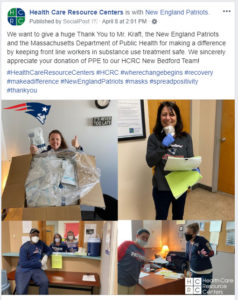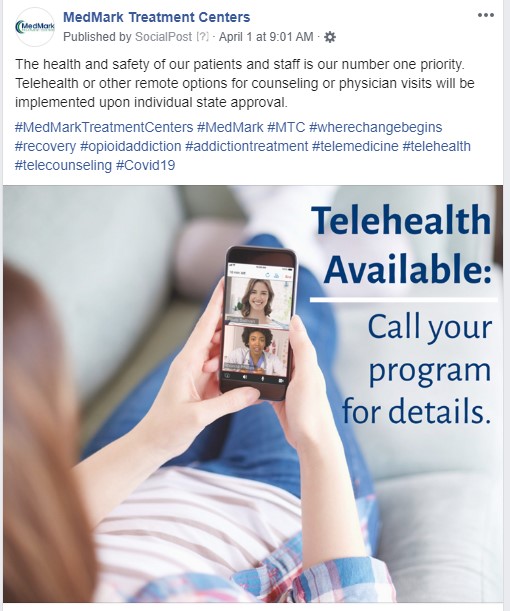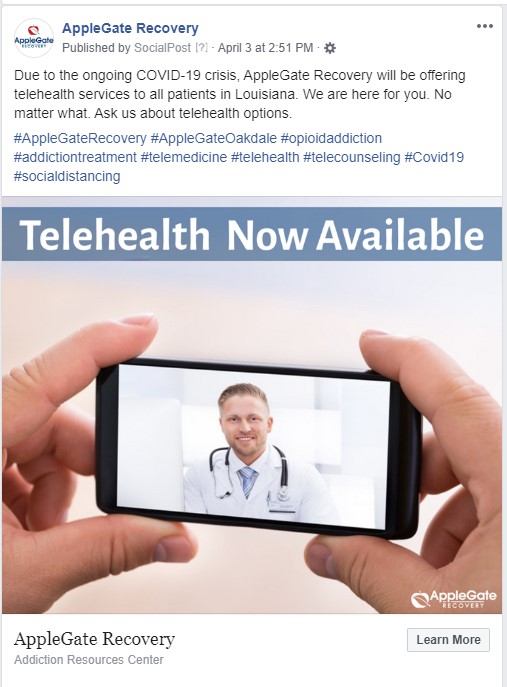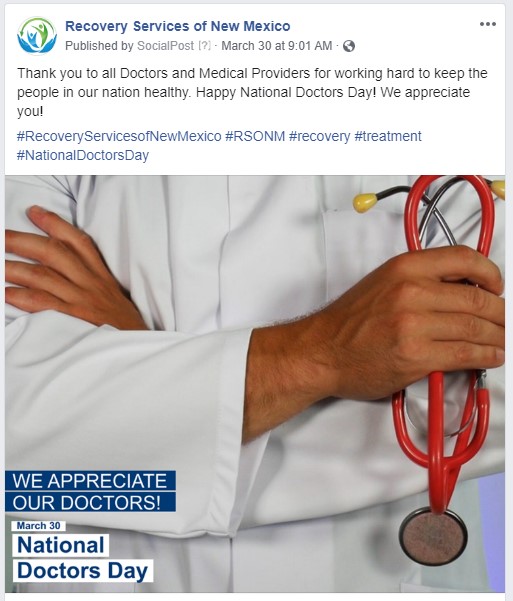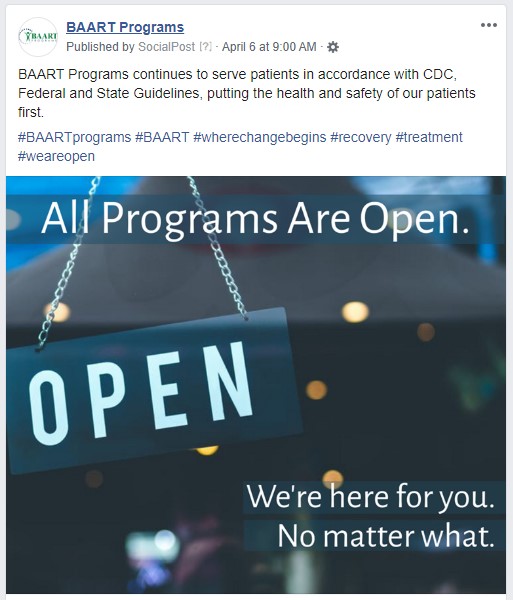Opioid Treatment Providers Step Up Amidst The Crisis
There is help to be found at the intersection of two public health emergencies, the opioid epidemic and COVID-19 pandemic.
Contributor: Jason Kletter, Ph.D.
Americans struggling with opioid use disorder (OUD) face significant challenges to change their lives and recover, even in the best of circumstances. Today, with social distancing requirements and self-isolation to combat the spread of coronavirus, those challenges are greater than ever before.
Worsening year after year since the early 2000’s, President Trump officially declared the opioid crisis a public health emergency in October of 2017. On March 11 of this year, the World Health Organization declared the coronavirus a global pandemic. The intersection of these two health crises has left the more than 3 Million Americans who struggle with opioid use disorder vulnerable.
Medication-assisted treatment (MAT) is widely considered the most effective option to combat the opioid crisis. Medication therapy and substance use counseling together are used to deliver a comprehensive treatment program. Most MAT patients visit their program frequently, some daily if they are new to treatment or at high-risk of relapse. This element of MAT provides much needed structure and accountability for patients in early recovery, but the impact of coronavirus now causes considerable difficulty.
Opioid Treatment Programs (OTPs) utilize three FDA-approved medications, methadone, buprenorphine and naltrexone, based on each patient’s unique needs. Methadone is the most highly regulated, but all have rigorous requirements for participation in the OTP setting. Methadone maintenance treatment (MMT) typically requires daily visits, while buprenorphine is used on a different prescribing schedule; however, patients taking either medication are medically-supervised. Opioid treatment programs are adapting their approach to accommodate the “new normal” and continue to deliver essential medical services to their patients during the COVID-19 pandemic.
“My team has stepped up to this challenge and continues to make me proud to work with such a dedicated group of individuals,” shared Jessica Eagles, Treatment Center Director of Health Care Resource Centers in New Bedford, MA. “I realize how stressful it is to balance everything personally, as well as professionally, but they continue to be there for our patients as a consistent support in their recovery.”
In active addiction, people tend to isolate themselves for any number of reasons. In recovery, focus is placed on making connections to build a support system. Asking individuals in recovery to isolate themselves can increase anxiety and depression, and break those connections, leaving them vulnerable to relapse and overdose.
Most State Opioid Treatment Authorities have adopted measures allowing patients to temporarily take home 2-28 days’ worth of medication during the COVID-19 pandemic rather than visiting daily. The time frame is determined based on physician judgement for what is best for each patient and their recovery under these exceptional circumstances. Additionally, the federal government and most insurance companies are allowing counseling to be provided via telehealth. This connection with patients is critical during such times of isolation. Both measures reduce the number of patients in the facility each day, going a long way to accommodate social distancing guidelines to help control the spread of the virus.
Brian Krebs, Treatment Center Director for MedMark Treatment Centers in Downtown Baltimore, MD said, “It’s an amazing display of cooperation and teamwork that the State of Maryland recognizes the plight of our patient population during this pandemic. It’s also amazing that as a company, we have the ability to respond to this pandemic and keep our patients stable and safe in an unprecedented moment in history.” He also added, “Telephonic counseling is a wonderful idea. It lets us keep in touch with patients to make sure that they are doing well during this stressful time.”
Inside the treatment programs, dedicated staff work to provide the safest environment possible for themselves and their patients. Opioid and other substance use is challenging on its own, but when coupled with other health conditions can place this patient population at higher risk for the coronavirus.
Temperature checks, health screenings, frequent sanitizing of high-traffic areas, gloves and masks and other measures are all being put in place to protect the patients and staff, as well as those they may come into contact with outside of the treatment program. Communities and family members are supporting the efforts through the making of masks and donation of supplies.
Those struggling with opioid use disorder who are not currently in treatment may worry that the circumstances and guidelines surrounding the COVID-19 pandemic could make it difficult for them to seek treatment. However, providers of MAT across the country are working to make their facilities safe for all patients and are sharing the message that they are still here to help, now and in the future.
Some states allow for buprenorphine/Suboxone® admissions to occur via telehealth. While the MAT Leadership Council and AATOD have asked to be able to offer methadone maintenance treatment admissions via telehealth, so far permission has not been granted by the Substance Abuse and Mental Health Services Administration (SAMHSA). In the meantime, OTPs providing methadone continue to do intakes, modifying the process to accommodate for social distancing requirements and screening all new patients for fever or other symptoms of illness.
“Currently we are limiting the number of people in the lobby, and they are given a screening for symptoms and exposure. They are asked to wash their hands and wait in a designated area meeting all distancing guidelines. Staff is utilizing PPE for the protection of both the staff member and the patient,” detailed Rachel Anderson, Treatment Center Director for BAART Programs Port Angeles, Washington. “The bottom line at my clinic is, we will always serve those in need of treatment. Nobody is denied help despite the toughest challenges; we face them and move forward, together.”
While Americans find ways to care for themselves and others during this trying time, opioid treatment providers across the country continue to care for their patients. They know that when the coronavirus has slowed, and life returns to some normalcy, the battle against the opioid epidemic will carry on. The fear and uncertainty from this pandemic will certainly have created difficulty for those already suffering with a substance use disorder and may have created new addiction issues for Americans struggling to cope. Fortunately, OTPs are here now and will always be available to help people in our communities.
CATEGORY: BAART Programs, BayMark Health Services, Health Care Resource Centers, MedMark Treatment Centers, Recovery Services of New Mexico

